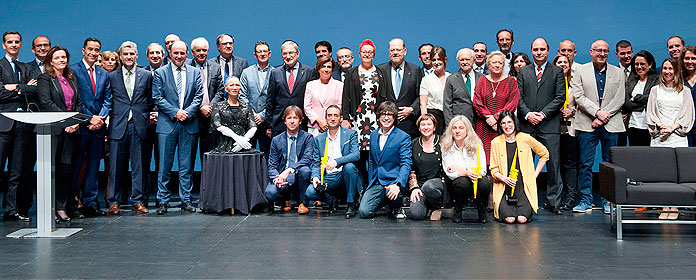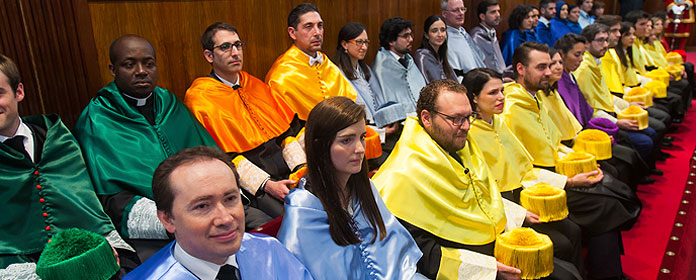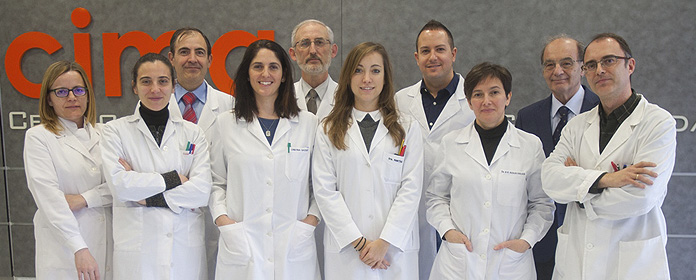2000_01_21_El_vicerrector_de_Alumnos_de_la_Universidad_de_Navarra,_premiado_por_la_Academia_de_Farmacia
The University's Alumni Vice President receives an award from the Academy of Pharmacy.
José López Guzmán submitted to the competition the work 'Deontología farmacéutica. Concept and foundation'.
The University of Navarra's Alumni Vice President , José López Guzmán, has been awarded by the Royal Academy of Pharmacy with the award Elvira Moragas of the 1999 Scientific Competition. Professor López Guzmán presented to the competition the work 'Deontología farmacéutica. Concepto y fundamento', carried out in partnership with Ángela Aparisi, professor of Philosophy del Derecho.
The Vice President of the University of Navarra points out in its work that "the pharmacist is entrusted with the care of health and life and, at the same time, feels pressured to respond to new approaches generated by recent advances in science and technology".
As he explains, this progress gives the specialist more efficiency and "new powers, with unforeseeable consequences. These reasons force the pharmacist to be very aware of the social repercussions of his professional work . He will have to discern between a good action and a bad one, but he will also have to know how to answer why".
In the award-winning work , which will be published in a book, the authors have set out to define the pharmaceutical profession and to describe the origin, foundation and development of the notion of deontology. On the first point, López Guzmán and Aparisi pointed out that although "with industrial progress, the pharmacist went from being a drug manufacturer to a dispenser", the latest discoveries, "especially in the area of molecular biology, are leading the researcher to invade previously limited areas".
Another booming approach in the profession is "Pharmaceutical Care", according to which the expert assumes more responsibilities towards the patient and tightens the partnership with other health agents.
Spain, without a Code of EthicsOne of the novelties that the authors demand for the Pharmacy of the 21st century is the creation of a code of ethicsThe authors call for the creation of a Code of Ethics, as opposed to the current lack of official deontological references. In Spain, in fact, it has not been possible to draw up an official Code of Pharmaceutical Deontology. "However, Spanish pharmacists have always been aware of the existence of some ethical requirements in their professional behavior," point out the professors of the University of Navarra.
José López Guzmán and Ángela Aparisi have highlighted the growing inclusion of Deontology as subject in a large part of the Spanish Pharmacy Schools . This subject is increasingly essential to avoid the risk "that the professional dimension of the human being is reduced to a mere technical issue. Added to this, especially in Western societies, is the existence of an economistic mentality that gives great importance to the chrematistic dimension of work".
The creation of a code of ethics in the pharmaceutical field would help to fill the "gaps that constantly occur between internship professional and positive legislation", since the latter is always "lagging behind society". Likewise, a code would give "certainty and advertising to the principles and rules of professional ethics" and would establish channels so that this profession "has as framework of reference letter man himself, preventing its instrumentalization."



